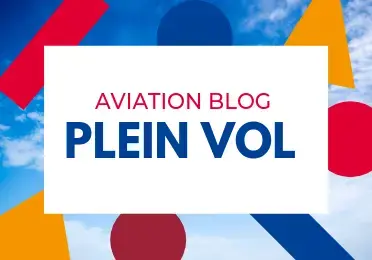JIG : these 3 letters stand for Joint Inspection Group. It is thanks to them that fuel is transported and stored safely at the world's biggest airports. This international organisation sets all the standards in this field. Who are its members? What are its missions? Plein Vol takes you behind the scenes of the JIG.
It all started in the 1970s with the major oil companies running joint ventures* together at the larger airports all around the world. Prior to that they had all had their own standards when it comes to the transport, logistics, storage, distribution and quality control of fuels. They therefore decided to pool their good practices and standardise their processes so they would be working on the same principles. This is how the JIG came into being. As a founding member, TotalEnergies has been part of the venture since the beginning alongside BP, Chevron, Eni, Exxon, Q8 Petroleum and Shell.
Setting safety standards in the world of aviation
Starting in 1973, they together established a first generation of 4 international standards. The first one, JIG 1, explains how to manage refuelling operations, meaning the transport of fuel from the airport depot to its distribution to the aircraft wing. JIG 2 concerns the storage of fuel at an airport. Among other things this explains how documentation should be monitored before discharging the product, design of the tanks (floating suction, cone shape to aid decantation of water, etc.), rules for filtering and drainage, etc. There is a variation of this standard, JIG 4, for smaller airports. Finally, the standard EI JIG 15-30, which has recently replaced the JIG 3, was written in collaboration with the Energy Institute, another body for the standardisation of aviation equipment. This last standard concerns rules to be followed in depots and refineries. All these standards are fully revised every 5 years in addition to annual updates on specific subjects. Whatever the standard, the JIG has a sole objective: to maintain the product integrity (meaning to make sure it is not altered, for example by impurities or pollutants) throughout the logistical chain, as well as the safety of employees and passengers.
Regular control audits
The organisation's other key role is to ensure standards are correctly applied. This is done by means of control audits. Every year the 2,000 biggest airports in the world, under the JIGs jurisdiction, are audited by one of the 50 JIG-certified inspectors. "TotalEnergies has 6 certified employees whose full-time job is to conduct several dozen audits each year at sites managed, either fully or as a joint venture, byTotalEnergies or where our fuel is distributed. The auditor reviews a checklist of requirements for each standard. Nothing is left to chance. There is a follow-up in the event of non-compliance", explains Gilles Gauthier, Inspection & Quality Control manager at TotalEnergies department.
Officially becoming a JIG-certified inspector requires carrying out several inspections supervised by a certified inspector and undergoing extensive training provided by the JIG. They must then conduct 6 inspections over a 2-year period to keep this status.
The JIG's final role is training and sharing information (feedback...) in order to keep improving the quality.
TotalEnergies: ever more vigilant and demanding
All these standards form a common base for JIG members. TotalEnergies adds an additional level of requirement: "We are sometimes stricter due to our experience. We have also published an operations and quality control manual which gives practical advice beyond the rules set by the JIG. This is a big help for operators! ", adds Gilles Gauthier. The added value that TotalEnergies brings to the entity is unparalleled field knowledge. "Most of the major companies have withdrawn from certain geographical regions, particularly in Africa. Not TotalEnergies! We are sometimes faced with difficult situations there, such as access, which mean we have to use customised solutions. We share what we learn with our fellow members".
The JIG's decisions help to improve practices when it comes to the handling and storage of aviation fuels. These advances also have indirect benefits for aviation in general. "We are driving this dynamic of progress in all the areas where we operate with the aim of continuously improving the quality. The choice of equipment at our fuelling stations and our stringency when it comes to quality control, for example, are heavily influenced by the JIG's recommendations".
A link with IATA and A4A
Everything has changed over the last decade and new smaller distribution and storage companies have emerged. They obviously do not have the same experience. The JIG is today therefore welcoming these newcomers and now has around 100 members. This presents the organisation with a major challenge in how to support this growth.
Another key project is the collaboration with A4A (Airlines for America), which publishes its own standards for the USA (ATA 103) and, of course, the IATA (International Air Transport Association). These three organisations have expressed their willingness to move towards a single common standard. With its strong history and credibility, the JIG has taken a leading role in this process and is aiming to become THE global reference when it comes to the safety and control of aviation fuels. This evolution is in line with TotalEnergies ambition of continuously improving performances in terms of safety and the ambition to become the benchmark and local partner when it comes to implementing adapted service solutions.
*Joint subsidiary of two or more companies with international economic cooperation
In figures
- 100 members
- More than 2,500 airports
- Supply and distribution sites in more than 100 countries


